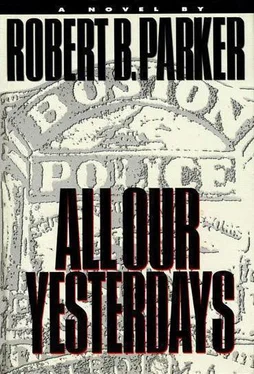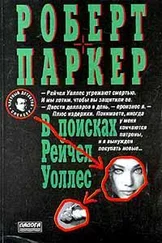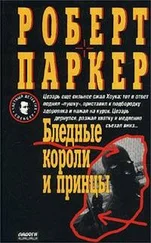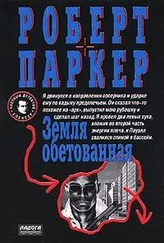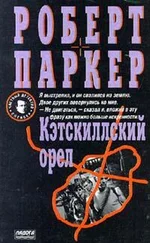Conn and O’Gorman went up, heavy with firearms, burdened with ammunition, laden with explosives, and dripping oil.
There was a chimney near the gable end, and another at the opposite gable. Conn slithered his way across the wet slate roof, straddling the ridgepole, trying to be silent, forty feet up in the murky darkness. When he reached the far end he turned, braced his back against the chimney, and sat on the ridgepole as if he were straddling a horse. He couldn’t see O’Gorman at the other end of the roof. He took the hammer from the loop on his belt. It was a long-handled hammer, the kind used for framing, with a twenty-ounce head. He waited a moment, took in a long breath, let it out slowly, and brought the hammer down on the slate. The crack of the roofing slab sounded like an explosion in the still night. He smashed another tile, and poured gasoline into the opening. He unlimbered one of the sods of turf from his neck and lit it and dropped it into the hole. He lit another one as fast as he could and dropped it in, and the flames came up with a yellow roar. He could see O’Gorman now in the blaze they’d started, and they crawled toward each other, breaking through the slate roof, pouring in gasoline, dropping in the blazing oil-soaked sods. His can was empty. He tossed the can aside and it skittered down the roof and off.
From inside the barracks rifle and pistol fire began. Flames flaunted up through the broken roof now, no longer yellow, but red as they began to feed on the wooden interior of the building. Conn dropped one of the grenades and hunched back as its explosion sent flames and smoke up toward him. He threw the other one and missed the opening. The grenade rolled down the roof and lodged in the gutter. Conn lay flat and the grenade went off too close. The concussion deafened him for a moment and it was minutes before the ringing in his ears subsided. He scrambled back toward the chimney. The remaining slate was hot to the touch. He reached the chimney and climbed up on it, and to himself grinned in the flaming darkness. Praise-be-to-God the peelers don’t fire up the flue . The wind turned the smoke and flames now toward him, now away. His hands were burnt. His face felt singed. He pulled out the parabellum and emptied the clip through the roof into the burning barracks. Then he emptied the Webley and sat with his legs dangling over the inferno while he reloaded. It occurred to him as he did so that his clothing was soaked in oil. One spark and I go down in history as a fiery leader . He grinned at his own joke, and fired again into the flames below. From the shed that angled off from the main barracks, police were firing up at him through openings in the roof. He returned fire from the chimney. From inside the barracks a Very light went up through the shattered roof, then another, visible for miles against the black sky.
Below him he could hear his men shouting at the police, taunting them. Goddamn them . He screamed down at them.
“Shut up, you fucking gossips.”
But the gunfire was too insistent and the roar of the fire too loud for anyone to hear him. A bullet wanged off the edge of the chimney, sending a fragment of brick to slash across his cheek. Conn laughed out loud. A second bullet hit him. He swayed briefly with the bruise of it as it tore into his shoulder.
“Shit,” he said.
Then he felt numbness. He could see the blood soaking through his coat around the entry hole. There was a medical kit in his coat pocket. He got a gauze out, folded it, and held it against the wound with his chin. He tied a bandage around it using one hand and his teeth. The bleeding slowed. He loaded, fired, loaded, fired. Then he began to work his way across the ridgepole. His hair was afire; he put it out by running his hands through it. Little leaves of flame leapt up from his oily coat and he beat them out with his hands. The flames exploded up through the roof, blocking his way, preventing him from the ladder. Soaked with oil and gasoline, he would burst into flame if he tried to go through it. He would die here on the roof if he didn’t. It was thick fire. The gusting wind made it dance. He thought of that line, was it from Virgil, he used to know it in Latin. Something about it being fitting and beautiful for a man to die for his country.
“Good-bye, James,” he shouted.
“ Slan leat ,” O’Gorman shouted back.
The wind gusted in a different direction. The flames leaned away, and Conn scuttled past them to the ladder. I’ll have to look up that line .
O’Gorman went down the ladder first while the men on the ground fired at the windows and gunports to keep the police down. They gathered behind the stone wall. Across the hills, near the pass, the sky was pale gray. It was almost morning. Out of the near darkness behind the wall Feeney appeared on his bicycle.
“Cavalry,” he said, “from Dundrum.”
“How soon?” Conn said.
“Ten, fifteen minutes behind. They’re having slow going picking through the barriers, Cap’n.”
“Pull back and disperse,” Conn said softly. “We didn’t capture the bugger, but we surely caved it in some.”
Dead silent now, the men faded into the thinning darkness, away from the blazing barracks, into the cool, fine rain that fell steadily on the slow dawning countryside.
Conn lay flat in the ferns, trying for warmth. His shoulder was pounding steadily now. The rain had stopped, but the ground was still wet, and the dew came as he lay there, settling onto his back. His face was blistered, his eyebrows gone, his hair singed short. He could smell the burnt-hair smell of himself. The dawn seemed slow in coming. As it came it brought a low, cold wind that made the ferns rustle. The cavalry went by, column of twos, the chestnut coats of the horses gleaming in the first sun. In the ferns to his left: something stirred. Conn turned toward it, fumbling his Webley from its holster with his fire-reddened hands. The sound was a hare, rising for a look around. Its ears were stiff and canted forward, a slight shiver ran along its flanks. Its nose quivered, then its white scut flashed, and it was down, back among the ferns, and gone. Conn put the Webley back under his arm.
The hoofbeats of the cavalry squad dwindled and then were gone. Conn got to his feet. He was lightheaded and he felt sick. He moved across the fields, away from the road. As day came on it warmed, and the earth began to dry out beneath his feet. There were robins about and larks, that lifted suddenly in front of him, startled by his step. Now and then orange blackthorn berries colored the landscape. As he moved, the heat pulsed insistently in his shoulder. He needed water badly, but there were only the dark amber puddles in the bog, and he knew he shouldn’t drink from them.
It was nearly noon when he came upon a small thatch-roofed house among outbuildings. A thick, gray-haired woman in a black dress, with a plaid man’s jacket over it, was feeding some hens in the yard. Conn’s head was swimming now, and the heat of his shoulder had nearly enveloped him, and the throb of it pulsated through him. He had dwindled inside himself until most of him was expended in simply staying on his feet. He had no thought of what he must have looked like to the woman as he approached.
“A fine morning to you, ma’am,” he said as clearly as he could. “I need a drink of water.”
“It’s considerable more than that you’ll be needing,” she said, and took his arm, and tried to hold him upright as he pitched forward among her chickens. After that was without chronology. He was carried. His clothes were gone. He was in a bed. The linen smelled of fresh air. Needle. Bandage... Dublin. We can’t do it here ... truck... smell of livestock... tarpaulin... hay... British voices... Lie quiet, lad ... jouncing... some pain... hospital clatter... smell of antiseptic... white coats... ether... whirling... faster... down... vortex... bottomless.
Читать дальше
